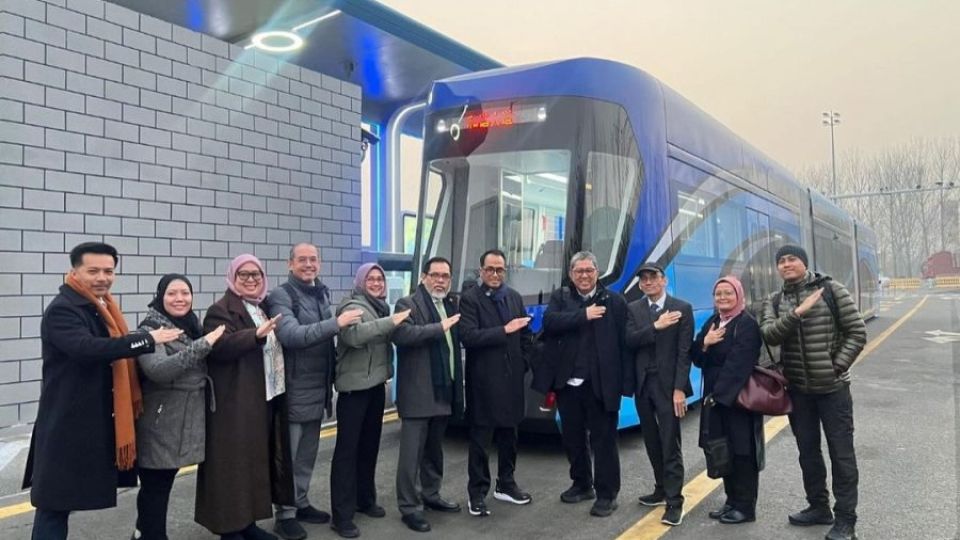January 17, 2024
JAKARTA – Indonesia was exploring the possibility of building infrastructure for an autonomous rail rapid transit (ART) in Nusantara Capital City (IKN), Transportation Minister Budi Karya Sumadi said on Friday, at a meeting with his Chinese counterpart Li Xiaopeng in Beijing.
Budi conveyed the Indonesian government’s desire to use ART trains produced by state-owned manufacturer China Railway Rolling Stock Corporation (CRRC) in the nation’s new capital in East Kalimantan.
He added that the two countries possessed strong commitment to continue enhancing their cooperation in developing transportation infrastructure.
“The Whoosh Jakarta-Bandung high-speed rail is a manifestation of bilateral cooperation, which is now operating and has received high enthusiasm from the public,” Budi said, as quoted by Tempo.co.
CRRC is reportedly planning to display an ART train car in July at an exhibition in Nusantara, which presents an opportunity to demonstrate the capabilities of the autonomous rail service.
“One train consists of three cars for 307 passengers, with an operational speed of 40 kilometers per hour and a top speed of 70 kph,” Budi said.
The train does not require a special track, and instead runs on ordinary streets like buses and cars.
According to the CRRC website, an ART train “adopts the ‘virtual rail following control’ technology, precisely keeping the train on the predefined virtual trajectory by using the sensor onboard to identify the virtual trail on the ground and giving command via the central control unit, thus realizing unmanned driving”.
Budi also visited a CRRC facility and rode an ART train, he said in a post uploaded on Sunday to his Instagram account Budi Karya Sumadi (@budikaryas).
“As we can see, there is no railway, there is only a small magnet [for guidance],” he says in a video clip posted to Instagram.
Budi added that he had also asked for Beijing’s cooperation in attracting private investments to railway development projects in several Indonesian cities, such as Bandung, Semarang and Makassar.
Apart from discussing the prospects of developing an ART service in Nusantara, the minister also invited China to invest in Indonesia’s aviation sector, especially regional airports with short runways.
Budi also expressed his intention to cooperate with China on education and training programs to improve human resources in the maritime sector.
Silvia Halim, the facilities and infrastructure deputy at the IKN Authority, said separately that her department was in communication with the Transportation Ministry on the development of an ART service in the new capital.
Silvia said the trackless train technology was promising for Nusantara but also posed some challenges, news portal Detik.com reported.
The ART system required a dedicated corridor and the new capital was located in hilly terrain, she explained, so the automated train could not serve all areas.


